What I need
I need an ArgumentParser, with a conflict handling scheme, that resolves some registered set of duplicate arguments, but raises on all other arguments.
What I tried
My initial approach (see also the code example at the bottom) was to subclass ArgumentParser, add a _handle_conflict_custom method, and then instantiate the subclass with ArgumentParser(conflict_handler='custom'), thinking that the _get_handler method would pick it up.
The Problem
This raises an error, because the ArgumentParser inherits from _ActionsContainer, which provides the _get_handler and the _handle_conflict_{strategy} methods, and then internally instantiates an _ArgumentGroup (that also inherits from _ActionsContainer), which in turn doesn't know about the newly defined method on ArgumentParser and thus fails to get the custom handler.
Overriding the _get_handler method is not feasible for the same reasons.
I have created a (rudimentary) class diagram illustrating the relationships, and therefore hopefully the problem in subclassing ArgumentParser to achieve what I want.
Motivation
I (think, that I) need this, because I have two scripts, that handle distinct parts of a workflow, and I would like to be able to use those separately as scripts, but also have one script, that imports the methods of both of these scripts, and does everything in one go.
This script should support all the options of the two individual scripts, but I don't want to duplicate the (extensive) argument definitions, so that I would have to make changes in multiple places.
This is easily solved by importing the ArgumentParsers of the (part) scripts and using them as parents, like so combined_parser = ArgumentParser(parents=[arg_parser1, arg_parser2]).
In the scripts I have duplicate options, e.g. for the work directory, so I need to resolve those conflicts.
This could also be done, with conflict_handler='resolve'.
But because there are a lot of possible arguments (which is not up to our team, because we have to maintain compatibility), I also want the script to raise an error if something gets defined that causes a conflict, but hasn't been explicitly allowed to do so, instead of quietly overriding the other flag, potentially causing unwanted behavior.
Other suggestions to achieve these goals (keeping both scripts separate, enabling use of one script that wraps both, avoiding code duplication and raising on unexpected duplicates) are welcome.
Example Code
from argparse import ArgumentParser
class CustomParser(ArgumentParser):
def _handle_conflict_custom(self, action, conflicting_actions):
registered = ['-h', '--help', '-f']
conflicts = conflicting_actions[:]
use_error = False
while conflicts:
option_string, action = conflicts.pop()
if option_string in registered:
continue
else:
use_error = True
break
if use_error:
self._handle_conflict_error(action, conflicting_actions)
else:
self._handle_conflict_resolve(action, conflicting_actions)
if __name__ == '__main__':
ap1 = ArgumentParser()
ap2 = ArgumentParser()
ap1.add_argument('-f') # registered, so should be resolved
ap2.add_argument('-f')
ap1.add_argument('-g') # not registered, so should raise
ap2.add_argument('-g')
# this raises before ever resolving anything, for the stated reasons
ap3 = CustomParser(parents=[ap1, ap2], conflict_handler='custom')
Other questions
I am aware of these similar questions:
- python argparse subcommand with dependency and conflict
- argparse conflict when used with two connected python3 scripts
- Handling argparse conflicts
- ... and others
But even though some of them provide interesting insights into argparse usage and conflicts, they seem to address issues that are not related to mine.
